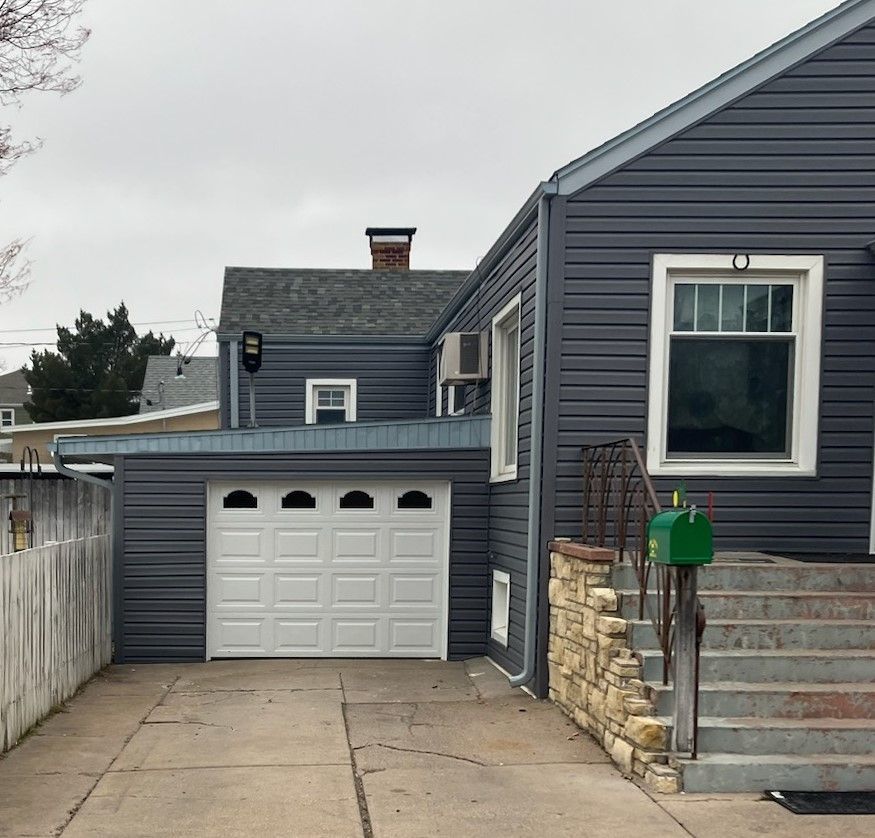
Choosing the Right Roof for Your Home
When choosing a roofing style for your home, you’ll often face the decision between flat roofs and pitched roofs. Each type offers its own unique set of advantages and challenges, which can significantly impact the overall function, appearance, and longevity of your home. By understanding both options, you can make an informed decision that suits your budget, climate, and aesthetic preferences.
The Pros and Cons of Flat Roofs
Flat roofs are a popular choice for modern homes and commercial properties due to their sleek, minimalist design. While they may look trendy and provide additional space for various purposes, they come with both advantages and drawbacks.
-
Pros of Flat Roofs:
- Cost-Effective: Flat roofs are generally cheaper to install due to their simplicity and the materials used.
- Extra Usable Space: Flat roofs provide the opportunity for additional living space, such as a rooftop garden, patio, or solar panel installation.
- Modern Aesthetic: Flat roofs are perfect for homes with a modern, industrial, or minimalist design.
- Easy to Maintain: Flat roofs are easier to walk on due to their level surface, making maintenance and inspections simpler.
-
Cons of Flat Roofs:
- Water Drainage Issues: Flat roofs can face drainage issues, leading to water pooling, leaks, or mold if not carefully maintained.
- Limited Lifespan: Flat roofs tend to have a shorter lifespan compared to pitched roofs. They may need more frequent repairs or replacements.
- Vulnerability to Weather: Flat roofs may have trouble handling heavy snow or rain, which could lead to structural damage in wetter climates.
- Insulation Challenges: Flat roofs may need extra insulation to maintain energy efficiency and reduce heat loss.
Pitched Roofs: Pros and Cons
Pitched roofs, characterized by their angled design, are commonly found on residential homes, especially in areas prone to heavy rain or snow. The slope of pitched roofs allows for natural runoff of water and debris, but it comes with its own pros and cons.
-
Pros of Pitched Roofs:
- Better Water Drainage: The angle of pitched roofs helps water run off naturally, reducing the risk of pooling water that flat roofs face.
- Durability: Pitched roofs generally have a longer lifespan, particularly when constructed with high-quality materials like asphalt shingles or metal. They are more resistant to weather damage.
- Energy Efficiency: Pitched roofs tend to allow for better ventilation, reducing the risk of mold growth and improving overall energy efficiency in your home.
- Increased Property Value: Pitched roofs are generally more appealing to potential buyers, particularly in areas with severe weather, due to their durability and protection.
-
Cons of Pitched Roofs:
- Higher Installation Costs: The complexity of pitched roofs means they are generally more expensive to install, requiring more materials and labor than flat roofs.
- Maintenance Can Be Difficult: The steepness of pitched roofs makes maintenance and repairs more challenging, particularly for homeowners who do not have easy access to their roof.
- Potential for Attic Space Issues: Pitched roofs often create attic space that is harder to utilize efficiently, which could limit storage options or add to heating and cooling costs.
Which Roof Style Is Right for Your Home?
Choosing between a flat roof and a pitched roof largely depends on your location, budget, and aesthetic preferences. Consider the following factors when making your decision:
- Climate: If you live in a region with heavy snow, rain, or wind, a pitched roof’s superior drainage might be more beneficial. Flat roofs are ideal for milder climates.
- Budget: Flat roofs are more affordable initially but may need more repairs over time, while pitched roofs have higher upfront costs but last longer with fewer repairs.
- Home Design: Think about your home’s design. Pitched roofs suit traditional or rustic styles, while flat roofs are more fitting for modern or industrial looks.
Conclusion
Both flat and pitched roofs offer unique benefits and drawbacks. Ultimately, the decision should be based on your specific needs, whether it’s budget, climate, or design preference. Consulting with an expert roofing contractor can help ensure you make the best choice for your home.
Contact Weathercraft Roofing for Your Next Roof Project
Are you ready to choose the right roof for your home? Contact Weathercraft Roofing today to discuss your roofing options and receive a free consultation!
Get Your Free Roof Estimate